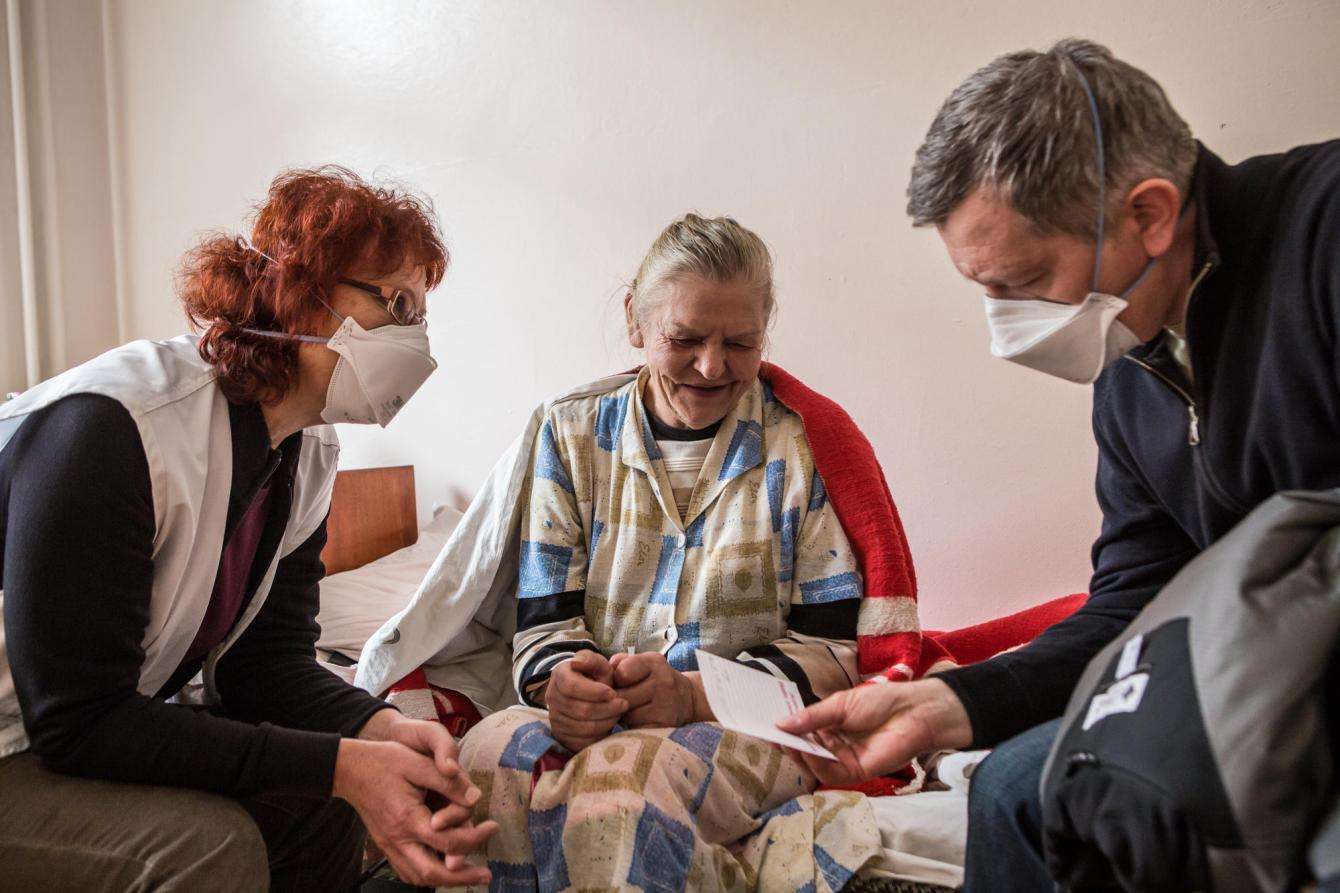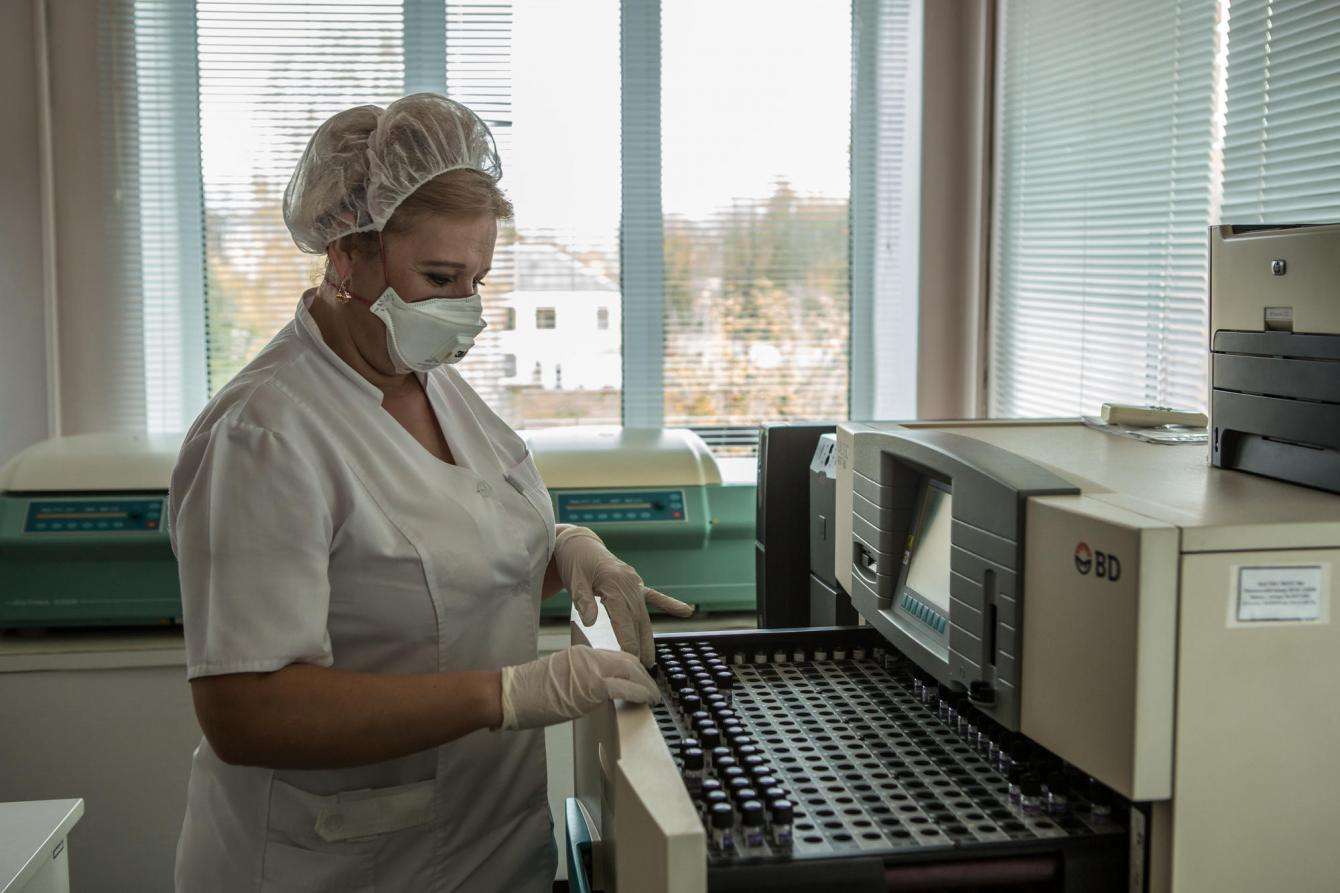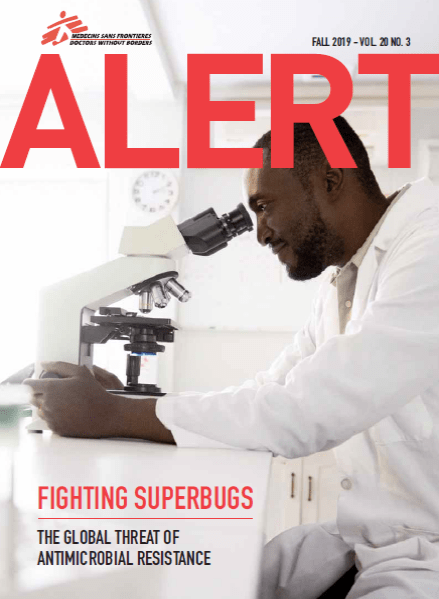In a forest on the outskirts of Zhytomyr city in northwestern Ukraine stand the brick buildings of the regional tuberculosis (TB) hospital. While most countries now treat TB on an outpatient basis, patients in Ukraine still spend months—and sometimes years—confined in isolated hospitals like this one. The treatment for TB, especially drug-resistant forms of the airborne bacterial disease, is not easy.
Patients must endure painful daily drug injections and a cocktail of pills that can cause a range of side effects such as nausea, itching, fatigue, deafness, and even psychosis.
At Zhytomyr regional TB hospital, there is little to distract patients from the difficulties of their treatment: funding shortages have seen the library shut down and the television removed. Many patients find the long, harsh winters, during which they must remain inside, especially difficult to cope with. The side effects of the drugs, the monotony of hospital life, and being separated from their family and friends for months on end can leave them feeling depressed and hopeless. As a result, some patients check themselves out of the hospital before their treatment is complete.
A patient-centered approach
Incomplete TB treatment is a major concern, as it can lead to the development of drug-resistance. Ukraine is among the 20 countries in the world with the highest burden of drug-resistant TB (DR-TB), according to the World Health Organization (WHO). In Ukraine, DR-TB accounts for more than a quarter of new TB cases and almost half of previously treated cases. Drug-resistant cases are especially difficult to cure, with a treatment success rate in Ukraine of just over 50 percent.
In 2018, Doctors Without Borders/Médecins Sans Frontières (MSF) launched a pilot project in partnership with the regional TB hospital to improve the treatment of DR-TB in Zhytomyr based on the latest international recommendations. The program offers patients more manageable and effective treatment options, including a shorter treatment plan that lasts just 9 to 12 months instead of the standard 20 to 24. It also uses new and highly effective oral TB drugs.

Until very recently, globally recommended treatment options available to people with DR-TB included up to 14,600 pills and painful daily injections that can cause devastating side effects.
MSF also works with local health providers so that patients can move to outpatient, home-based care as soon as they are ready. Through counseling and education, MSF's mental health team assists patients with the challenges they face, both inside and outside the hospital, to ensure that they complete their treatment successfully.

New drugs, new hope
In December 2018, the World Health Organization announced new recommendations for the treatment of multidrug-resistant TB (MDR-TB), a form of the disease that is resistant to the two most powerful first-line TB drugs. According to the announcement, fully oral treatments should become the preferred medication option for most patients, and injectable agents are no longer among the priority medicines to be considered when designing longer treatments for MDR-TB. In particular, kanamycin and capreomycin—drugs known to cause severe side effects—are no longer recommended. Instead, the guidelines urge the use of newer, more potent drugs like bedaquiline and delamanid for all adult MDR-TB patients.
The WHO first recommended use of bedaquiline for treatment of drug-resistant TB in 2013. But uptake of it and other new TB drugs remains very slow, with the lifesaving medicines still inaccessible to almost 90 percent of people worldwide who could have benefited from them in 2017.
In Ukraine, bedaquiline was registered in June 2018, while delamanid was registered in January 2019. MSF was one of the first organizations to offer these drugs to patients in Ukraine, and has been outspoken about the importance of expanding access to them. All new patients in the MSF pilot project in Zhytomyr are now prescribed oral TB drugs only, and we hope to see these guidelines become the standard in Ukraine and beyond.
MSF is one of the largest nongovernmental providers of care for patients with TB, which remains the deadliest infectious disease worldwide. In addition to providing DR-TB treatment in various countries, MSF conducts research with partner organizations to develop the evidence base for the therapeutic value of newer treatments. Our Access Campaign is also calling for these essential medicines to be more affordable and more widely available, and for greater research and development efforts to focus on treating DR-TB as a priority.





